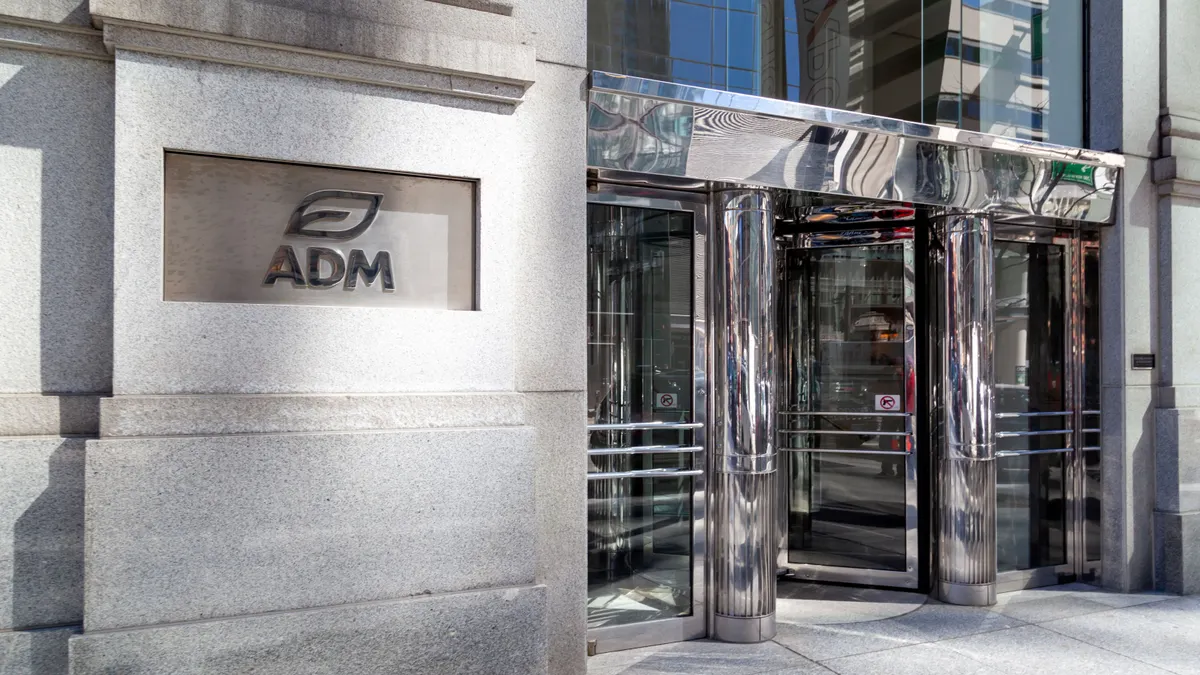From his office on the fourth floor of the U.S. Chamber of Commerce building in Washington, D.C., Thomas Donohue commands a grand view of Lafayette Park, abloom with flowers, and, beyond that, glimmering in the sun, the White House. On his desk, Donohue keeps a blunt reminder of what it takes to maintain such a view:
a small plaque that says “Show Me the Money.”
Having spent nearly a decade at the helm of the organization, Donohue has emerged as an undisputed master of both raising and spending money. His fund-raising prowess has remade remade the Chamber into the richest, most powerful, and arguably most successful business lobby in the United States. As the Chamber’s coffers have swelled, so too has its agenda, which now includes everything from scaling back Sarbanes-Oxley to battling the Securities and Exchange Commission to promoting U.S. business in China, assessing the state of the country’s public-education system, and waging legal battles in state and federal courts.
Donohue loves a good fight, and his fans applaud his ability to rally the troops for a huge range of causes. His critics, some of whom are very much probusiness themselves, contend that both his agenda and his methods are ill-advised, allegations that he shrugs off as an inevitable byproduct of intense advocacy.
No one can dispute his impact on the Chamber. Since he became president and chief executive officer in 1997, he has tripled its operating budget to a projected $151 million in 2006, boosted the number of full-time lobbyists from 2 to 18, and transformed the organization into a bully pulpit from which he has redefined the business of lobbying for business.
Until a few years ago, the Chamber was a meek participant in the rough-and-tumble game of politics. Most companies relied on their trade associations to protect their interests discreetly; those groups worked mainly behind the scenes with small budgets and narrow agendas. Donohue’s big money has bought a bullhorn for the Chamber, and it is speaking out on a broad array of issues, many of them highly controversial, including immigration, trade policy, health care, homeland security, foreign investment, and Social Security. Despite the lobbying scandals that brought down House Majority Leader Tom DeLay and bought a nearly six-year jail sentence for lobbyist Jack Abramoff, Donohue says the Chamber has no plans to rein in its spending. “Everything we do is within the law,” he says.
Indeed, the law seems to hold a special fascination for Donohue. The Chamber is unique among associations in that it has its own in-house law firm. Three full-time lawyers and one part-timer staff the firm, which last year was involved in 85 cases as plaintiff or friend of the court. The Chamber says 43 of those cases were decided in its favor. The Chamber also has filed amicus briefs in cases pending before the U.S. Supreme Court. “Tom loves litigation,” says Robin Conrad, senior vice president of the National Chamber Litigation Center. “We live in a litigious society, and he believes in fighting fire with fire.”
Ten Wide, Six Deep
Still, “money doesn’t guarantee success,” Donohue says during a recent interview in his opulent office on H Street. “You’ve got to deliver the goods. My deal is simple: I am here to represent our members with the highest integrity and good manners. I’m not looking for a barroom brawl…but our adversaries should be forewarned. We’re coming at you 10 wide and 6 deep. We play to win.”
Now 67, wiry, and with a shock of white hair, Donohue says he learned long ago that “people don’t give money to causes, they give money to people who have ideas, passion, and commitment.” He started his career with a short stint in academic administration, then joined the U.S. Postal Service where he rose to deputy assistant postmaster general. Next, Donohue joined the Chamber as a group vice president, but left in 1984 to head up the American Trucking Associations. It was there that he hit his stride as an association executive, helping the ATA become one of the most powerful groups in Washington. In 1997, Donohue was wooed back to the Chamber, where his $1.8 million in annual salary makes him one of the highest-paid association executives in the United States.
Upon his return to the Chamber, Donohue began to mobilize grass-roots support, reaching out to local chambers and to business executives. (Donohue says he meets with 200 chief executives a year.) Today, the Chamber has 3 million members, encompassing several thousand state and local chambers and hundreds of trade associations. The Chamber does not disclose how much its individual members pay in dues, though a spokeswoman says that some of the largest companies pay an annual fee of more than $100,000. The Chamber says 96 percent of its members are small businesses with fewer than 100 workers.
The Chamber has not been shy about looking for opportunities to flex its newfound muscle. In 2004, the Chamber and its Institute for Legal Reform spent a total of $53.4 million on lobbying efforts. PoliticalMoneyLine, which analyzes lobbying expenditures, says that amount is more than any single organization has ever spent in a single year. The Chamber claims that 94 percent of the 269 candidates it endorsed for federal office and for state attorneys general won in 2004. As part of its campaign to reform courts, the Chamber also has targeted judicial elections in recent years, claiming to have unseated antibusiness jurists in more than two dozen courts in Alabama, Mississippi, and other states. This year, with critical races in dozens of states, Washington insiders expect the Chamber to spend as much or more to aid candidates friendly to business.
The Chamber also counts the passage of the Class Action Fairness Act, which moves most large multistate class-action lawsuits out of state courts and into federal courts, as a victory. (Many business groups believe the federal courts will be less sympathetic to such suits.) Perhaps more suggestive of its growing political clout, the Chamber last year waged a quiet but insistent campaign to undermine SEC chairman William H. Donaldson, who resigned last summer after two years in the post. Some of the organization’s members had viewed him as having overreacted to a wave of corporate scandals with heavy-handed enforcement and policy-making at the agency. It’s an open question as to what role, if any, the organization ultimately played in his departure. Donaldson declined to comment.
Many members welcome the changes at the Chamber. “Business didn’t have a seat at the table of power in Washington until Tom took over,” says Raymond Burns, president and chief executive of The Rogers-Lowell Chamber of Commerce in Rogers, Arkansas. Win Hallett, president of the Mobile, Alabama, Chamber of Commerce and chairman of the Chamber of Commerce Committee, which represents 100 large or influential chambers in the United States, recalls: “Before Tom, the U.S. Chamber was a cold, lifeless, and unresponsive place. You’d go to Washington and they’d tell you to pay your dues, sit down, shut up, and we’ll tell you what matters. You’d leave with a couple of lousy brochures. Tom’s Chamber cares about the customers. That’s us. We tell him what matters.”
As a port city with large aerospace, maritime, and biomedical interests, Mobile is keenly concerned with several national public-policy issues, including health care, the shortage of skilled workers, tort reform, immigration, and transportation. In March, Hallett led an 18-member delegation of local business leaders from Mobile to Washington to visit legislators and meet with specialists at the Chamber. “The Chamber had policy experts in the room to address every single issue we had,” recalls Hallett. “They had done their homework.”
Douglas Kinsinger, president and CEO of the Greater Topeka, Kansas, Chamber of Commerce, concurs. “Tom has brought the grass-roots businesspeople of this nation back into the fold. We pay the U.S. Chamber 10 times what we used to pay, but my members believe we’re getting our money’s worth.” Although he won’t disclose exactly how much his Chamber sends to Washington, he says his members are particularly pleased with the organization’s victories in creating health savings accounts for workers and with its efforts to open up international markets to trade.
But the Chamber has also ruffled the feathers of local businesses. In 2004 in the state of Washington, the Chamber’s Institute for Legal Reform poured $1.5 million into a television-advertising campaign to defeat a candidate for state attorney general who it regarded as antibusiness, apparently without alerting or seeking the approval of the local chambers. In a sharply worded letter to Donohue, five local chambers and the Association of Washington Business protested the intrusion into local politics. “We want to register our strong dissatisfaction with the campaign itself as well as the complete lack of consultation and communications with us,” the group said in its letter.
The manner in which the Chamber pursued its agenda also angered the local chambers. The Chamber had funneled the $1.5 million through a local voter-education organization, and only after state election authorities filed suit did that group disclose that the Chamber was the source of the money. This “presented serious credibility problems for those of us who…are working very hard to brand the chamber name as a positive force in our communities,” the group said. Donohue maintains that the Chamber acted appropriately in that race. The Democratic candidate opposed by the Chamber was defeated.
Secrets of Fund-raising
Victorious or not, the new and more aggressive Chamber troubles more than a few in the business community. “I am very disappointed,” says Richard Schonberger, president of Schonberger & Associates, in Bellevue, Washington. “It seems to me that the Chamber is going off in a direction that isn’t serving the business community. How far will it go?”
Costco Wholesale Corp. decided several years ago not to join the organization after reviewing its political agenda. “I was appalled to find the Chamber is funneling millions and millions under a cloak of secrecy to support predominantly Republican candidates,” says chief legal officer and senior vice president Joel Benoliel. “We are strenuously against involving our company and our shareholders in partisan politics.”
Donohue has stirred concerns among more-moderate members of the business community that he has taken some fights too far and tarnished the reputation of the U.S. Chamber. Many business executives decline to speak publicly for fear of inciting his ire, but they worry that he will further inflame antibusiness sentiments among the public in the wake of corporate scandals.
Business Roundtable is among the groups that have been careful not to align themselves too closely with Donohue and the Chamber on some issues. The two organizations differ sharply over Reg FD, for example, which bars companies from selectively disclosing key information to investors or analysts. Although the Chamber initially supported its 2001 passage, it opposes the SEC’s interpretation and implementation of Reg FD, while Business Roundtable has told the SEC as recently as last year that it continues to support it. John J. Castellani, president of the Roundtable, which represents chief executives of the nation’s largest corporations, says his group feels it has an obligation to be “more measured, less antagonistic, and less confrontational than other groups, including the Chamber.”
Financial Executives International, a professional group that represents 15,000 senior financial executives, has expressed displeasure with the Chamber’s threat to push for a congressional overhaul of Sarbanes-Oxley. Among other things, the Chamber seeks an exemption for some small public companies from Section 404 because it contends the compliance requirements are too costly. “Section 404 needs to be right-sized, but we think it should be handled by the SEC, not Congress,” says Grace Hinchman, senior vice president of public affairs for FEI. “Does the Chamber really understand what it is talking about here?” she asks rhetorically.
Working with the SEC does not seem to be high on Donohue’s priority list. His organization has been at war with the agency over issues broad and narrow. The Chamber has accused the SEC of overzealous enforcement. Donohue also has taken the SEC to court to challenge a ruling that 75 percent of a mutual fund’s directors be independent and that the fund have an independent chairman. (He appears to have won that battle; a federal appeals court recently instructed the SEC to review this particular rule.)
The Chamber’s fights with the SEC have prompted Nell Minow, co-founder of The Corporate Library, a corporate-governance research firm in Portland, Maine, to describe Donohue as “a thug. He is big and loud and wrong. I am horrified at the way he has politicized the U.S. Chamber of Commerce, diminishing its credibility. And by attacking the SEC, which protects investors, he has shown nothing but contempt for the shareholders, who provide the capital for business. He is not probusiness. He is pro-executive.”
Donohue is unrepentant. Three decades in Washington have left him with a pretty thick hide, and he seems to relish the thought of a few more bare-knuckle battles in the courts and in the halls of Congress. “I’ll retire when I’ve lost my acuity, my passion, or my energy,” Donohue says. “And I’ve still got all three.”
P.B. Gray is a freelance business writer based in suburban Boston.




















